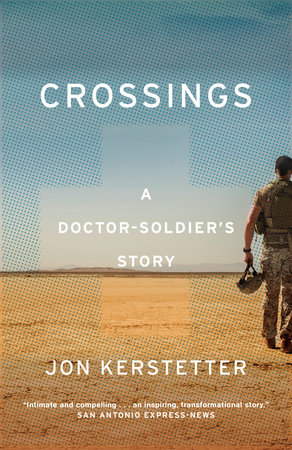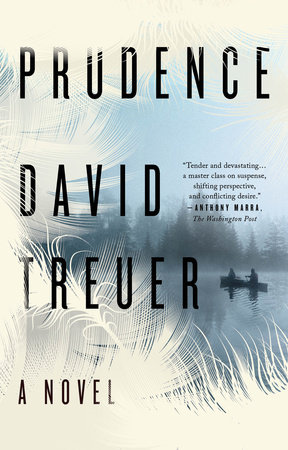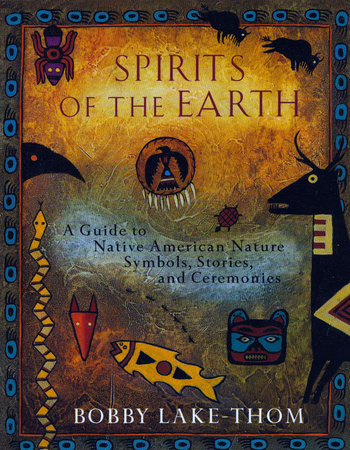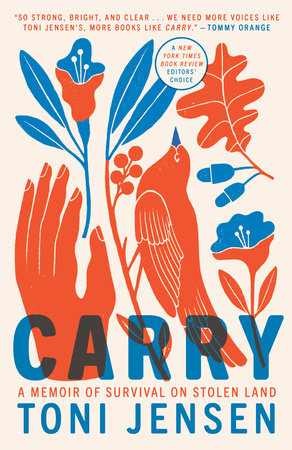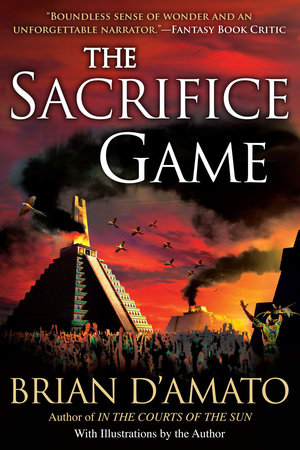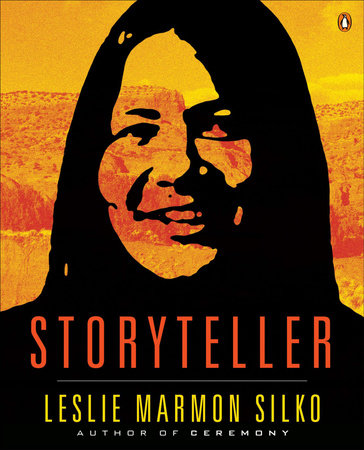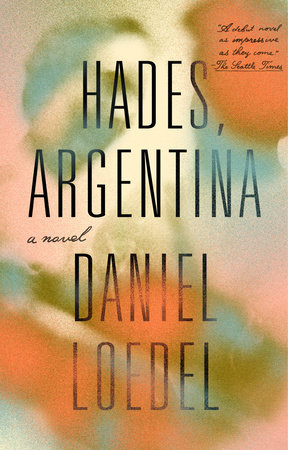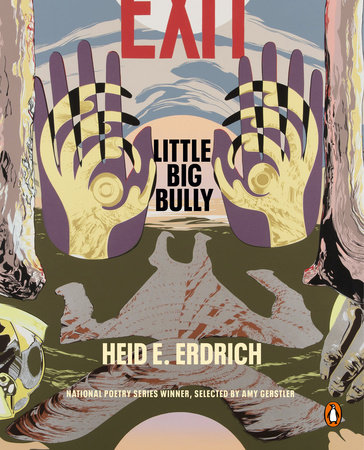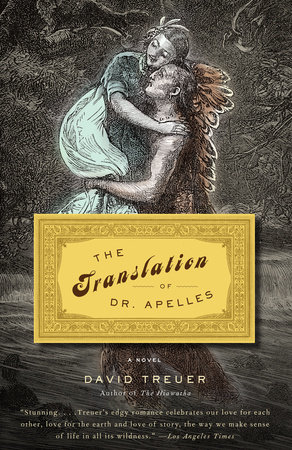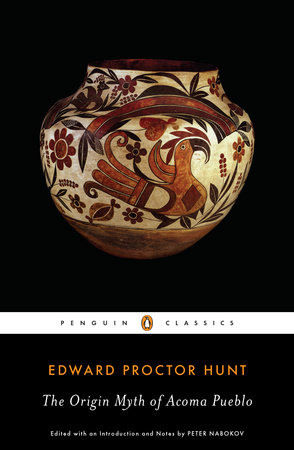A conversation with Jon Kerstetter,
author of
Crossings:
A Doctor-Soldier’s Story
You grew up on an Indian reservation in Wisconsin and say that “changing and overcoming a reservation paradigm was not easy.” What do you mean by that?
An Indian reservation is defined by boundaries. Until 1975, tribes were literally confined within those boundaries and their affairs managed by government officials. Those reservation boundaries were not merely geographical; they were cultural, economic, educational, and even spiritual. At the heart of the original paradigm was literally centuries of belief about the presumed social inability or lack of educability among Native peoples. The belief that somehow reservation people deserved something less distorted the way even Native peoples viewed themselves. My own grandfather was branded as “worthless” by the Carlisle Industrial Indian School. My mother was educated to the level of the fifth grade. When I decided to push my education beyond high school, she had no reference point for how to advise me. The Native American academic advisor in college, a Navajo Indian with a master’s in Social Work, told me that Indian students did not do well in the hard sciences. Going to college or thinking of a professional education required a new kind of thinking. Native students in my generation, while not the first to challenge those barriers, represented a significant shift in attitudes toward education as a prime survival skill among Native populations.
You became an MD at the age of thirty-seven. When and why did you decide you specifically wanted to become a military doctor?
I always had an interest in the military as a high school student. Maybe it was part of my own warrior mind-set. When I went through medical school, I entertained the idea of a military scholarship and even looked into a Naval medical scholarship. Though that didn’t work out, when I finished medical school and started my career in emergency medicine, I still had an eye toward medicine that involved intensity and risk. There seemed to me a good combination of both in the National Guard, and they offered training in aviation medicine and field medicine that was unavailable elsewhere. What I saw was a niche that I could fit into, the perfect blend of doctoring in the edgy and critical environment of the military.
After joining the National Guard, you did three tours in Iraq at the height of the war. How did you reconcile the requirements of being a soldier with the mandates of being a doctor?
The essential tension for military doctors is between killing and healing, and it is a moral and social tension that I bring to light in CROSSINGS. Ultimately, to be a good soldier in any capacity, one must commit to killing when necessary to protect the lives of those who depend on them. For military doctors, that mandate is no different from an infantryman. But soldier-doctors have a binary duty and mandate: heal whenever possible, kill when needed. Being faithful to both is not easy. I negotiated that moral and ethical minefield by understanding that if I did not fully engage the role of a soldier, at least in the crucible of war, I could not effectively gain the trust of my fellow soldiers and therefore would be far less effective in my role as a military physician. In essence, I had to prioritize my dual roles as soldier first, doctor second. Not everybody can survive in the warrior community, but those who choose it must commit to its mandates.
You were fifty-two when you went to Iraq, so you were often the oldest person in any platoon you were in. Did that add a unique element to the experience?
Age in the military gave me one very important advantage: perspective in the heat of the moment. All the experience I had gained from being older gave me just enough of an edge of wisdom so that outcomes were altered toward a more humane and reasonable result. During one of my tours, I confronted and almost shot an Iraqi teen. In the midst of holding him in my weapon sights, I realized how much he looked like my son and how he was probably just a non-thinking teenager who accidentally crossed a line when he should have been more diligent. My perspective as a father helped me to understand the situation for what it was and avoid pulling the trigger and killing him.
Elsewhere, my age helped me traverse cultural boundaries, particularly with older Iraqis and especially with those in medicine. I tended to talk with my age-matched Iraqi peers not as a soldier but more as a father or a family man, even as one who struggled with the insanity of war itself. I was friends with several Iraqi physicians whose interests were essentially aligned with my own: to take care of our families, minimize the impact of war where we could, and work together in the complex task of rebuilding the medical infrastructure. Interestingly, a few of the Iraqi military physicians asked me about being an American Indian and the folktales surrounding my culture. It turned out that their own indigenous nomadic tribes had some of the same issues and mystique of American tribes.
Your third tour ended when you were injured. Did the clinical distance you’d developed as a doctor in wartime help you deal with your own long recovery?
The clinical distance that allowed me to be so effective when dealing with traumatized patients in war became more elusive when I tried to apply it to myself. I was hurt, but I could not admit it or see myself as a patient. To do so would have meant I was subject to the same vulnerabilities as other soldiers. To me, and to many military doctors and soldiers, that vulnerability cannot exist, because if it does, our combat tasks become too weighty to carry. It is better to believe in a certain invincibility and move toward the battle and the injured, emboldened, if you will, by a certain bravado that is essential in war. After the injuries take hold and while in the hospital, that bravado runs counter to what must happen in healing. Healing requires the ownership of injuries and the full acceptance that recovery is not merely a session. It demands that the spirit, mind, and body stay focused on one mission: healing.
Achieving that perspective took me awhile because as I tried to view myself with any clinical distance, I saw a brain-injured soldier-doctor who could not go back to the practice of medicine or the practice of war, and that was a lonely and frightening place. Fortunately, I had therapists who pushed me to that place of acceptance over several years, and I was then able to treat myself more as a patient and give myself permission to heal.
You describe in vivid detail what it feels like to experience war and a stroke. Why did you choose to be so candid?
In war and in illness, there tends to be an underappreciation of what is involved in both the acute phase and the recovery phase. I knew if I wanted to be true to both war and stroke, I would have to let readers see the failings of my body and mind and psyche. I had put so much stock into the idea that inpatient therapy and long-term therapy would be curative, but it was not, and I wanted readers to see and feel that tension in their own bodies and minds. I wanted them to have the sense of loss and grieving I experienced, not because I need them to acknowledge my loss but to provide a way in which they could relate to losses in their own lives. I was trying to strike a chord that we all have in common: the pain and loss of illness and the hard work of recovery that does not always progress as we think it should.
Your stroke quickly ended your career as both a doctor and a soldier, though it took you about a year to admit to that truth. Was grappling with your loss of identity as demanding an experience as the physical recovery?
In some ways it was more demanding. It takes a lot of psychological energy to live in denial. There were a lot of things I had to distort and believe about the nature of healing as well as my own nature. And then, of course, I had to deal with the team of psychologists and therapists who were all trying to help, but whom I viewed as health spies prying into my private life. The necessity of trusting them was challenging in a way that pushed me to bend and yield and let go. And it was that letting go that was so hard emotionally and often painful and full of grief. What I ultimately learned was that when I finally grabbed hold of the truth, real healing began.
You struggled with your PTSD diagnosis and were more resistant to doing that emotional work than your extremely painful physical therapy. Why?
Part of my own clinical paradigm as an ER doctor tended to dismiss PTSD and its emphasis on disorder. There was also an underlying military mind-set that tended to dismiss PTSD as an issue of emotional and psychological weakness. None of that was based on fact, but it did saturate my way of looking at emotional and mental trauma. When I encountered PTSD in the field, I referred the cases to appropriate mental health workers. In my own case, I saw myself as not wanting to admit to the emotional and psychological trauma that I experienced, thinking if I did, it was tantamount to weakness. I needed to remain tough, to face down my physical trauma and cognitive deficits, but in the end, my resistance to PTSD only slowed my progress. I found it hard to trust my team at the VA and invest myself in the whole work of healing. I’ve since learned that for both physical and psychological trauma, the foundation of healing is trust.
You faced your medical traumas when you were in your fifties, but there are so many young veterans who face incredible physical challenges when their best years are still supposed to be ahead of them. What wisdom do you have to offer them?
I would offer this: Healing is akin to any mission in war. You have to understand the environment of it, the risks and challenges and complexities of it, and then you must align yourself with a team of people who have the necessary skills and insights to pull it off. That includes family support, military support, and healthcare providers. With that team of providers and supporters, the veteran must adopt a mind of resilience. The healing we seek does not always come quickly, nor does it come completely. The body and mind and spirit need time to adapt to new challenges. VA clinicians and the public in general often call the process of soldiers reintegrating into post-war life a “transition.” I don’t think it’s that at all, as nothing we come back to is the same. We change, our families change, our minds and bodies change. What we do in healing is far more than a transition; it is a personal remaking. One of my healthcare team interns jokingly referred to me as Dr. Kerstetter, version 2.0. She was right—only the version was something like 10.0 after years of therapy. If I had a young veteran as a patient, I would say this: “Keep pushing forward, my fellow warrior; you have so much to gain if you do.”
How did reading and writing become an integral part of your rehabilitation therapy and help you push past fixed expectations for your degree of recovery?
Good writing demands constant and thoughtful rewriting; and that in turn requires a persistence of deep thinking that pushes well beyond the surface of ideas or memories. In cognitive therapy and rehab, that is exactly what is needed to make new neural connections so vital to the recovery of function and memory. Language is a neocortical activity, but it also draws on the areas of the brain where we process emotion and pain and fear and hope. When we tell a story, we integrate all those areas and that becomes a powerful tool in cognitive healing. It’s that neural integration that helped me recover over time, as well as my willingness to push my writing to new levels of clarity and description. In that attitude of pushing the envelope, my therapist and I discovered that most of my presumed clinical plateaus were not fixed at all but more a moving target.
Reading proved helpful in much the same way as writing. Exposure to stories and the rereading of good writing gave me new insights and perspectives. The more I read, the easier it got and the more skill I recovered and the more brain connections I made over time. None of the recovery in reading and writing was quick or easy. It took time and a degree of patience I had to learn and accept.
Because of your cognitive impairments, it took you six years and hundreds of drafts to write this book. What was your writing process like?
At first, the writing was so disjointed it didn’t make sense. Things I wrote one day held no meaning the next. Added to that was the emotional impact of things I was writing about: loss of soldiers, loss of career, stroke, the heavy work of recovery. The VA sent me to an MFA program as sort of an experiment in vocational rehab. What I learned there was the fine art of revision, to clarify and write exactly what I saw in my mind and in memories. Basically, they taught me how to make use of my clinical training of observation and then adopt the craft of writing to present my observations on the page. I would work so hard at the sentence level and then work toward crafting meaningful paragraphs. When I finished a short essay or chapter, I went back and reordered most of the paragraphs because they had no linear sense of a story; everything was more or less a scattergram. So, to overcome the weakness of scattered thought, and hence a scattered story, I wrote and rewrote and did it again and again until a chapter made sense to me. I was also healing, so I leveraged my progress in other cognitive areas into progress in writing. One thing has become clear to me and my neuropsychologist: the process of constant thinking and revising in writing has pushed my recovery to levels we did not think possible in the beginning.
How are you feeling and functioning today? Is your recovery complete?
I continue to improve in function and feeling. Therapy does not end, though it is not as labor intensive as it was in the beginning. It has to continue, because if I stop working on my recovery, I will stop moving forward. Physically, I continue with some issues of pain and gait instability, but I am learning new strategies to minimize their impact. Everything in stroke recovery seems to be about managing any particular deficit, physical or cognitive. What I have found is that when I focus on the greater picture of healing, the day-to-day pains, or “stroke blips” as I call them, don’t have the same impact on my life as they used to. My personal one-word value has become resilience. When I was a young man, it was explore. Having now been a stroke survivor for ten years, I think I understand how the two values fit together.
